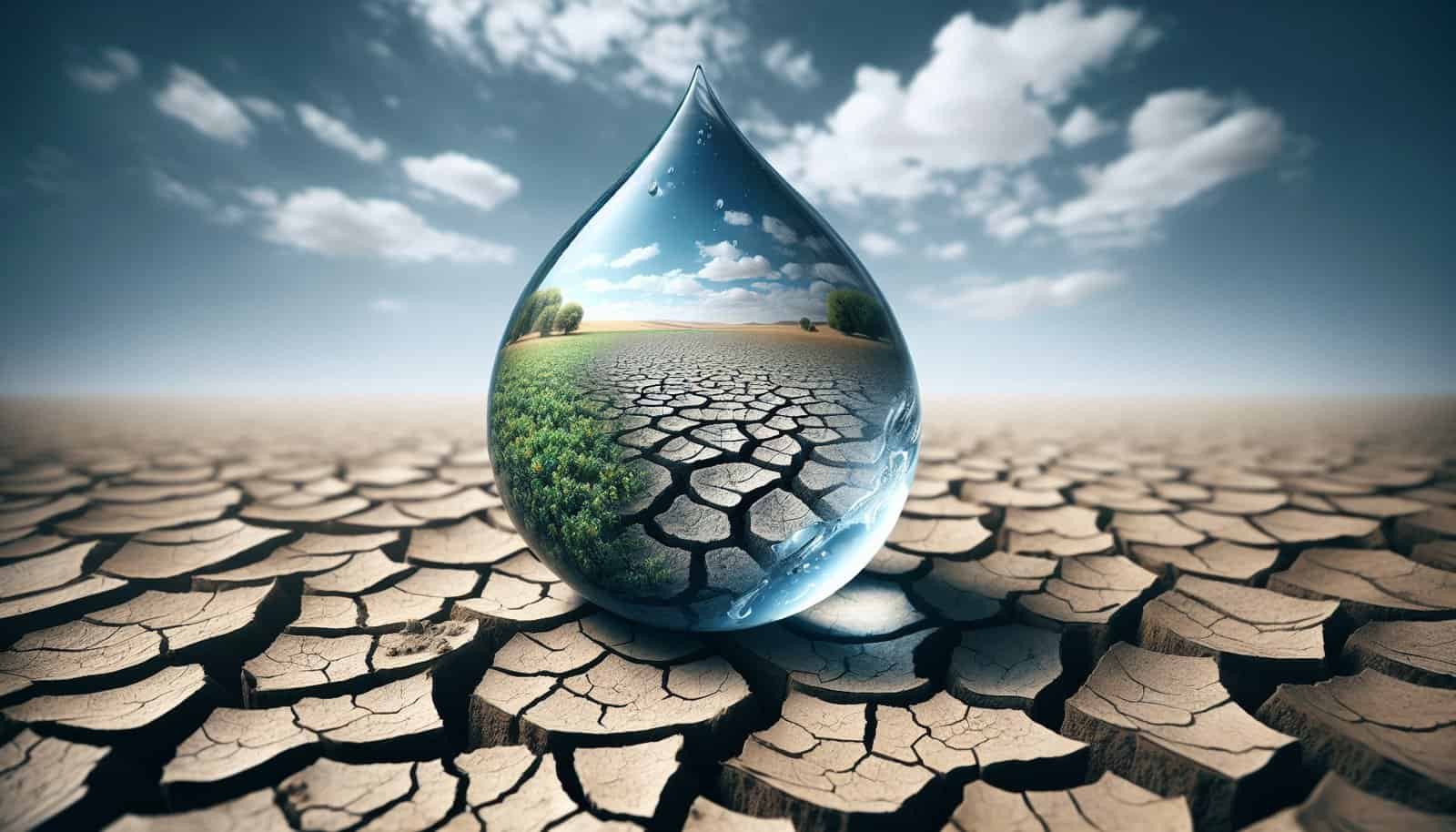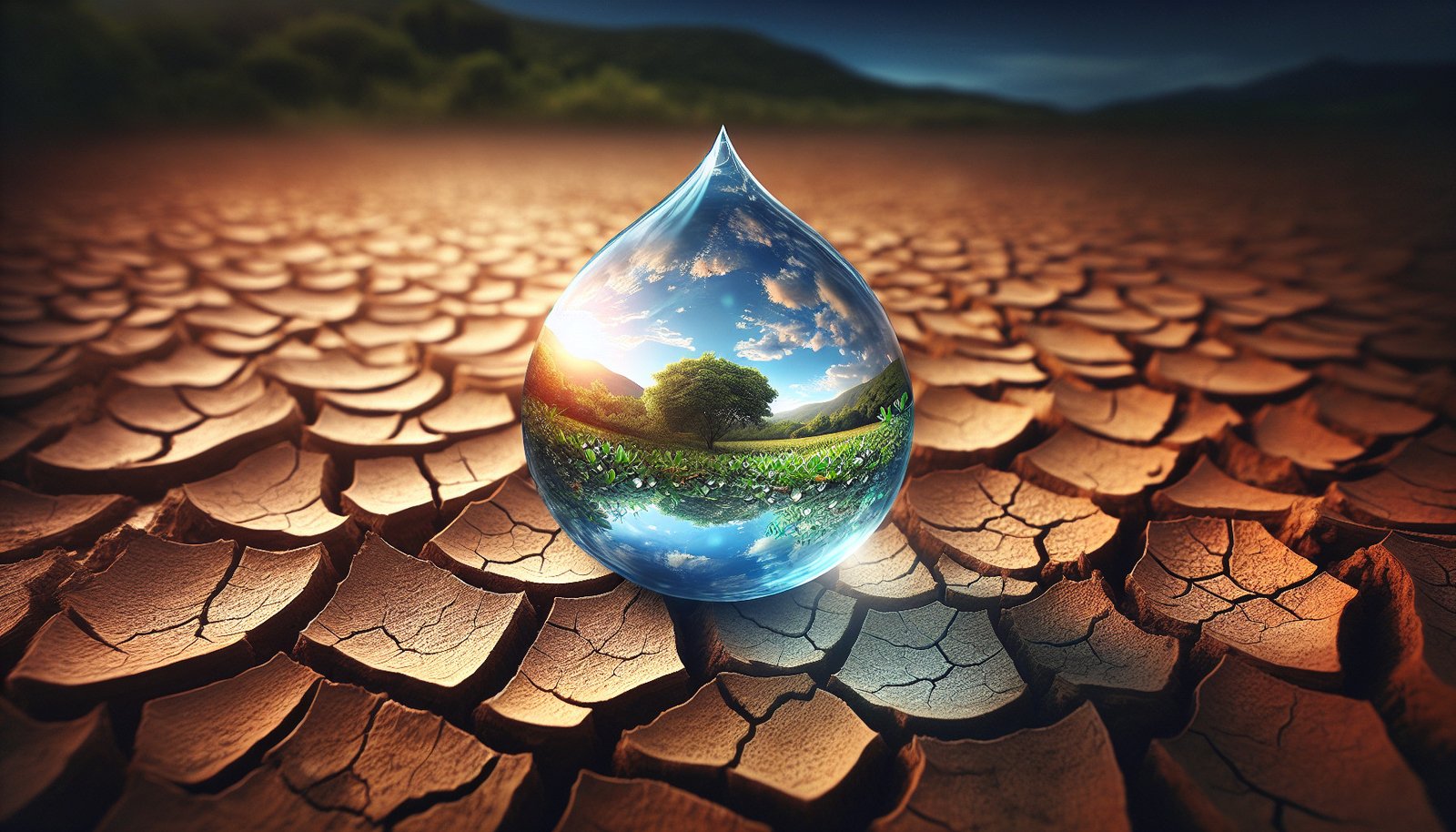Have you ever wondered about the impact of climate change on our planet’s essential groundwater resources? Understanding these effects is crucial as groundwater plays a vital role in agriculture, drinking water supply, and maintaining ecosystems. As we face the challenges of a changing climate, it’s important to be informed about how these changes might impact our critical water sources and what resources are available to detail these impacts.

Understanding Groundwater
Before exploring the impact of climate change, let’s start with the basics: what exactly is groundwater? You can think of groundwater as the water that saturates the earth, found in the cracks and spaces in soil, sand, and rock. It is stored in and moves through bodies known as aquifers. Groundwater can be considered a hidden treasure beneath our feet, forming a significant part of the hydrologic cycle and acting as a critical resource for both human consumption and natural ecosystems.
Importance of Groundwater
Why is groundwater so important? For starters, it serves as the primary source of drinking water for nearly half of the world’s population. Moreover, it’s a vital component in agriculture, providing irrigation to crops around the globe. Additionally, it supports wetlands and river bases, playing a significant role in maintaining the health of various ecosystems. Understanding the health and availability of groundwater is, therefore, closely linked to sustaining life on Earth.
Sources of Groundwater
Groundwater does not just appear out of thin air. It originates from precipitation that filters through the soil, replenishing aquifers. This process of replenishment is known as recharge, and it is affected by several factors, including local climate conditions, soil type, and land use patterns. As these factors change with shifting climates, it inevitably affects groundwater availability and quality.
Climate Change: An Overview
Before delving into how climate change affects groundwater, let’s consider what climate change is. Climate change refers to significant and lasting changes in the statistical distribution of weather patterns over periods ranging from decades to millions of years. The discussion often centers around global warming— the observed and projected increases in average global temperatures due to human activities, notably the emission of greenhouse gases like carbon dioxide and methane.
Human Influence on Climate Change
Human activity has dramatically accelerated climate change over the past century. The burning of fossil fuels, deforestation, and industrial processes have increased the concentration of greenhouse gases in the atmosphere, leading to a phenomenon known as the greenhouse effect. This effect contributes to global changes in temperature, precipitation patterns, and the occurrence of extreme weather events, all of which play a role in influencing groundwater systems.
Predicted Changes
Global warming contributes to various climate-induced changes, including sea-level rise, altered precipitation patterns, and more frequent extreme weather events such as hurricanes and droughts. These developments present potential risks and challenges for groundwater supplies, affecting both their quantity and quality.

Impact of Climate Change on Groundwater
The interaction between climate change and groundwater is complex. Alterations in precipitation, temperature, sea levels, and extreme weather events all contribute to changes in groundwater resources. Let’s examine each of these elements and how they impact groundwater specifically.
Changes in Precipitation Patterns
As climate change alters the global water cycle, changes in precipitation are inevitable. Areas that experience increased rainfall may benefit from enhanced aquifer recharge, but this could also lead to flooding and contamination. On the contrary, regions with reduced rainfall face drought conditions, causing aquifers to deplete without the necessary recharge to balance withdrawals.
Temperature Increases
Rising global temperatures can influence evaporation rates, reducing the amount of water available for groundwater recharge. Warmer temperatures may also increase the demand for water in agriculture and consumption, adding further stress to groundwater resources.
Sea-Level Rise
For coastal areas, rising sea levels pose a significant threat to groundwater. As sea levels rise, there’s a risk of saltwater intrusion into freshwater aquifers, particularly those near coastlines. This can contaminate drinking water supplies and is especially concerning for islands and coastal communities reliant on these sources.
Extreme Weather Events
Climate change has been linked to the increased frequency and intensity of extreme weather events like storms, hurricanes, and droughts. Such events can lead to sudden changes in groundwater levels, cause contamination from flooding, or exacerbate depletion during prolonged dry spells.

Resources to Explore the Impact on Groundwater
To effectively address the impact of climate change on groundwater, it’s important to access reliable and comprehensive resources. Here are some key resources that provide valuable insights into this critical issue:
Government and Intergovernmental Reports
Governments and intergovernmental organizations produce comprehensive reports detailing the effects of climate change on natural resources, including groundwater.
| Resource Name | Description |
|---|---|
| IPCC Assessment Reports | The Intergovernmental Panel on Climate Change regularly publishes detailed assessments on climate change science, impacts, and adaptation strategies. These reports often include sections devoted to water resources, including groundwater. |
| US Geological Survey (USGS) | The USGS conducts research and monitoring to understand the effects of climate change on water resources in the United States, offering data and publications that are rich in science-based insights. |
Scientific Journals and Publications
Academia contributes a plethora of research papers and articles that assess the intricate relationship between climate change and groundwater. Journals such as “Water Resources Research,” “Hydrology and Earth System Sciences,” and “Journal of Hydrology” regularly publish studies on this topic.
Online Databases and Tools
The internet offers numerous databases and interactive tools that allow you to explore groundwater resources and the impacts of climate change.
| Resource Name | Description |
|---|---|
| Global Groundwater Information System (GGIS) | Managed by the International Groundwater Resources Assessment Centre, this system provides maps, datasets, and tools to understand global groundwater situations. |
| World Water Assessment Programme (WWAP) | This program of UNESCO assesses the state, use, and management of freshwater resources worldwide, integrating climate change considerations. |
Environmental Organizations
Environmental organizations play a pivotal role in raising awareness and disseminating information about climate change and groundwater issues.
| Organization Name | Description |
|---|---|
| The Nature Conservancy | Provides resources and initiatives focused on preserving water resources in the face of climate change. |
| The Water Research Foundation | Offers research and solutions to ensure reliable water supplies, often incorporating climate resilience advisories. |

Addressing the Impacts
Understanding the impacts of climate change on groundwater is only half the battle. To mitigate these effects, collaborative efforts in policy, management, and technology are essential.
Policy and Management Strategies
Good policy and robust water management strategies are key to responding to the challenges posed by climate change. Governments and local authorities are encouraged to enforce water conservation measures, invest in infrastructure to prevent contamination, and implement policies fostering sustainable groundwater use.
Technological Advancements
Advancements in technology can aid groundwater management in several ways. For instance, satellite remote sensing can help track water levels, while AI and machine learning can improve the modeling of groundwater systems. Desalination technologies and wastewater recycling are also vital in augmenting water supplies under stress from climate changes.
Community Involvement
At the grassroots level, community involvement and education about groundwater conservation can make a significant difference. By promoting efficient water use practices and increasing awareness of local groundwater conditions, communities can partake in the preservation and sustainable management of their water resources.

Conclusion
To wrap up, understanding the impact of climate change on groundwater is a crucial step in safeguarding this vital resource. From changes in precipitation and temperatures to rising sea levels and extreme weather events, climate change presents multiple challenges to groundwater supplies. However, by utilizing the available resources—government reports, scientific journals, databases, and more—you can become well-informed about these impacts and work towards effective solutions. Through a combination of policy changes, technological advancements, and community engagement, it is possible to mitigate these challenges and ensure the continued availability and quality of groundwater for future generations.
